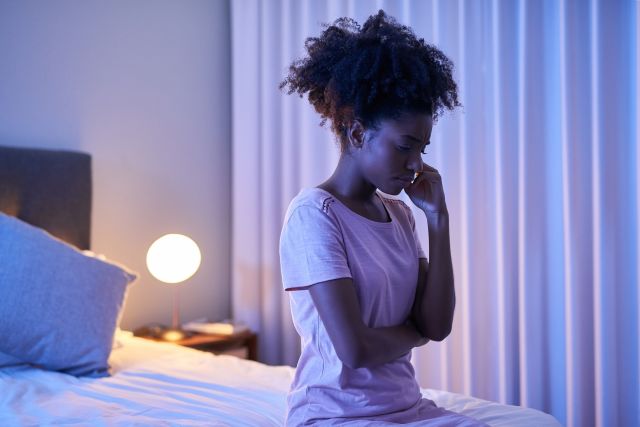Getting enough sleep is an important part of staying healthy. Adequate sleep is associated with lower stress, lower risk of cardiovascular disease, being at a healthier weight, better job performance, better immunity, and many other positive impacts on physical and mental health.
Conversely, inadequate sleep can have negative impacts on physical and mental health. Because sleep is such a vital component of health, it’s a topic you should be discussing with your healthcare provider. And sometimes sleep should be the primary focus of your appointment.
When should you see an HCP about sleep?
The number of hours of sleep a person requires on the average night can vary. If you find that you are sleeping poorly multiple nights a week and lack of sleep is impacting your quality of life, it’s time to see a healthcare provider. Here are some signs that a lack of sleep is impacting your quality of life:
- You struggle with concentration at work or school
- You have trouble remembering things
- You have difficulty making decisions or solving problems
- You can’t seem to stay awake and feel the need to take naps
- You are struggling with negative moods or emotions
- You take longer to finish tasks and make more mistakes than usual
- You feel stiff and achy
If you’re on the fence about whether it’s time for an appointment, remember that it’s better to address sleep disorders sooner than later. The effects of sleep deprivation get worse with time.
How can you prepare for an appointment?
Before your appointment, it can be helpful to keep a diary of your sleep habits. Some things to keep track of in this diary include:
- Times you went to sleep and woke up
- How long you slept each night (make a guess if you’re unsure)
- How long it took you to fall asleep
- How many times you woke up during the night
- How you felt when you woke up
- Number of caffeinated beverages you drink each day
- Number of alcoholic beverages you drink each day
- How tired you felt throughout the day
- How often you exercise and what type of exercise you do
- Number of naps you take each day
- Your moods and emotions
- Physical symptoms, such as fatigue and any pain you experience
You will also want to include notes about how long you’ve been struggling to sleep—has it been a few weeks or a few months? Keeping track of this information can help you and your healthcare provider identify patterns and potential causes of sleep disruption. Even if you haven’t been keeping a sleep diary, writing down a summary of your sleep habits over the past weeks and months will be helpful.
It’s also helpful to bring information regarding your medical history, including other medical conditions, and a list of medications you take (including vitamins and supplements).
At your appointment
Plan to discuss sleep at the start of your appointment, telling your healthcare provider about your symptoms, how long you’ve been experiencing these symptoms, and how they are impacting your life. Anytime you need to describe symptoms or an experience to a healthcare provider, it can be very helpful to have notes in front of you.
Based on your exam, your healthcare provider may order tests, may refer you to a sleep specialist, may recommend lifestyle changes, or may prescribe a sleep aid.







